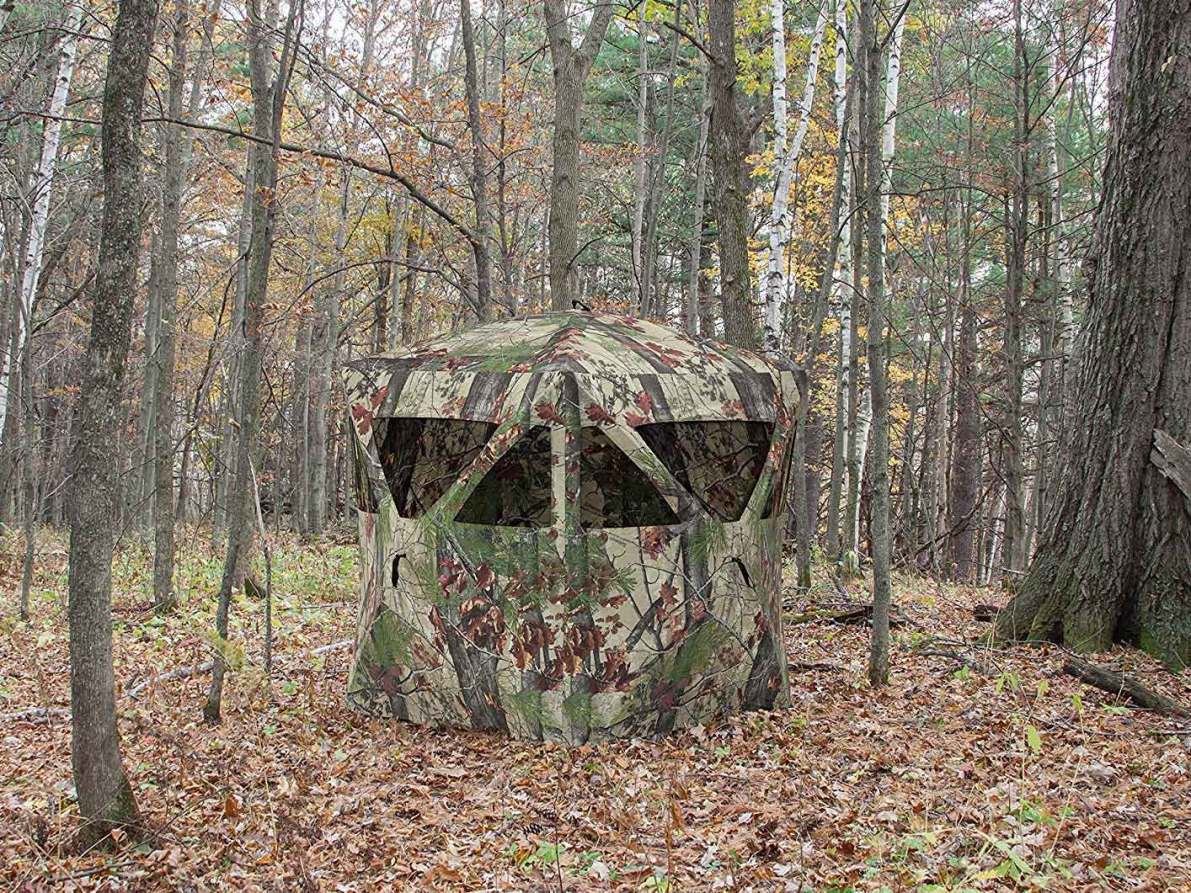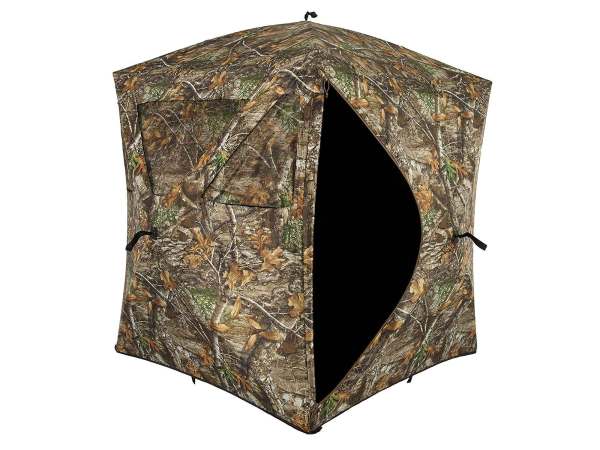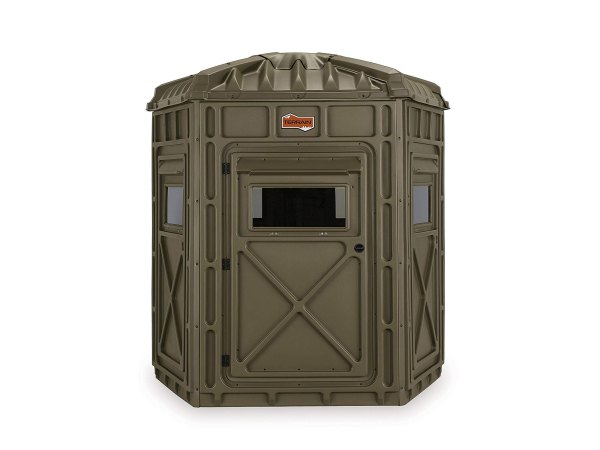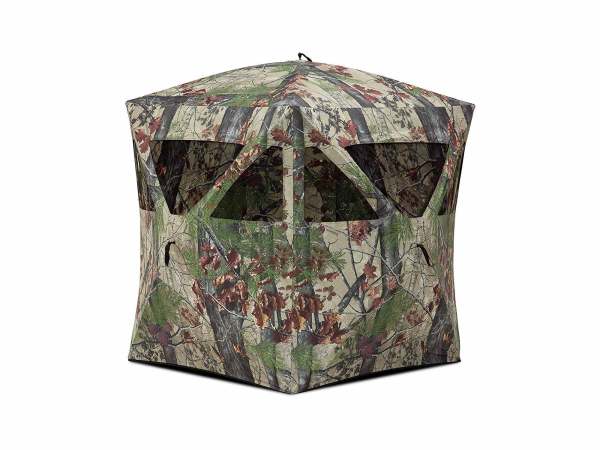We may earn revenue from the products available on this page and participate in affiliate programs. Learn More ›
Not long ago, hunting from a ground blind meant cobbling together whatever brush and boughs you found handy, then hunkering down behind it all to wait for the game to move. Blinds have come a long way since then, enhancing concealment while also increasing space and comfort. They typically accommodate more than one hunter and are a great way to share a hunt with others or conceal fidgety kids who are getting their first taste of the deer woods. Here’s a look at a few different bind features to help you zero in on which might work best for you.
Pop-Up Blinds
Top Pick
Focus On What You're There For
Pop-up blinds work essentially like an umbrella, with a fabric canopy or shell fitted over an articulated frame. They are reasonably lightweight and portable, and can be placed anywhere you find level ground. They are the most common type of blind on the market, and for good reason. Deadly on everything from turkeys to deer, antelope, and elk, a pop-up blind can sometimes get you in the game when no other method will. Beyond that, they offer varying fields of view from 180 to 360 degrees, with different camouflage styles and window arrangements. Primos’ new Double Bull Surround View blind features a one-way mesh billed as the ultimate in concealment with an unprecedented field of view.
Solid Blinds
Great for Foul Conditions
A Sturdier Choice
In seriously cold or wet environments, a solid-wall ground blind can save the day. They are not nearly as portable as a pop-up blind but can you can move one from location to location with a bit of help. They’re more stable than a pop-up under high winds, water-tight, and roomy enough for more than one hunter. A solid blind can even accommodate a small portable heater on bitter mornings.
Shoot-Through Windows
The Ultimate Concealment
Takes A Little More Focus
Many pop-up blinds are now marketed as having shoot-through mesh panels. They are intended to do just what they say, allow hunters to take aim directly through the panel from a concealed position. This is great in theory, but any shoot-through panel’s effectiveness is likely a variable of your set-up, especially for archery hunters. Be sure to practice at a known distance first to make sure that shooting through the mesh is not impacting your point of aim.



